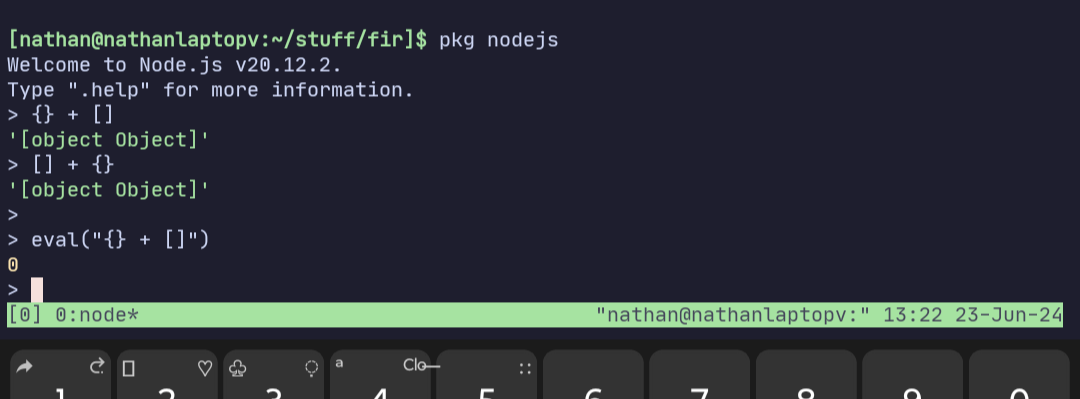Same for users — just change the ! to an @.
Example: @pageflight@lemmy.world
Same for users — just change the ! to an @.
Example: @pageflight@lemmy.world


Why not factor out the ! via de Morgan’s laws (which would also remove most of the parentheses, as iirc && binds tighter than ||)? Also, does that language have a {#continue} sort of syntax for loops? If so, you could make it a guard clause.
universe.take()
Immediately onto the lap.


The only times I’ve had tmux ‘crash’, I’d realized I forgot to enable linger.


I have serve-web running as a service, but that only works well on desktop screen layouts — from my experience, it runs terribly on mobile. However, even then, my tab layout isn’t synced between devices. My tmux saves all of my open projects, so I could throw my phone in a woodchipper at any moment, pull out my laptop, and be exactly where I left off. Good luck doing that with vscode.


I can run Neovim on my phone via Termux. I can run Neovim over SSH. I can run Neovim in tmux. That’s not possible with VSCode.


101% complete


Netcat, mostly
Nix has flakes; nix run can contain pretty much all of the needed dependencies. If that’s not enough, you can set up an entire container as a module.
Yep, parentheses force {} to be interpreted as an expression rather than a block — same reason why IIFEs have !function instead of just function.
The inspector REPL evaluates as a statement-with-value (like eval), so the {} at the beginning is considered an empty block, not an object. This leaves +[], which is 0. I don’t know what would make Node differ, however.
Edit: Tested it myself. It seems Node prefers evaluating this as an expression when it can, but explicitly using eval gives the inspector behavior: 


A MONAD IS A MONOID IN THE CATEGORY OF ENDOFUNCTORS
Sadly you can’t build a singleton. AbstractExtensibleMarkupLanguageHypertextTransformerProtocolRequestFactoryBuilder$Companion?


tips arch (btw)


SuicAid, the solution to your problems with suicide.


impl<'a, T: Child> ChildRef<'a, T> {
fn orphanize<T: Child>(r: Self) -> Orphan<T>;
}
Argument parsing; turning Rc foo = bar into Reconfigure(|c| c.foo = "bar").


-- |Removes the given object from its current parent, if any, and then adds it as a child of the other given object.
kidnap :: ChildBearing c p
=> p -- ^The kidnapper.
-> c -- ^The child to kidnap.
IO ()
Oh, that’s annoying. Works fine on Voyager for me.